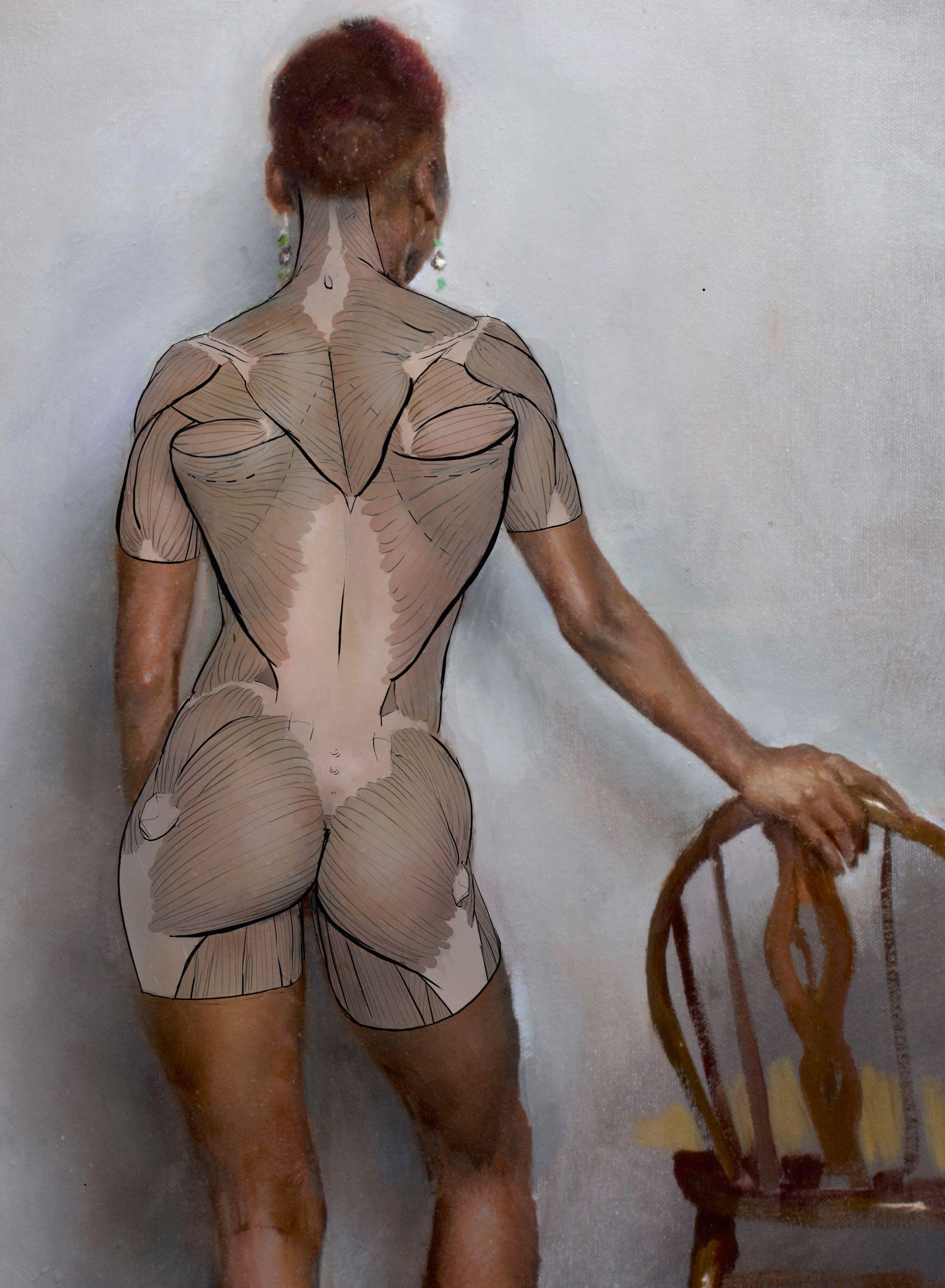
The back of the torso in figure drawing is often viewed as one of, if not the most difficult and complex area of the body to depict and learn. This is not without good reason; the back reveals and hides many of its structures depending on the body fat present in the model, the level of muscular development and even the position of the pose! At times, learning this structure can seem overwhelming to students.
However, if we take a structured approach to learning the many forms that create the back and break down the problem into easy-to-grasp, learnable chunks, we can approach it with confidence.
The first thing that will help us in this endeavour is to understand the reason for this complexity. As with all areas of the human form, the shapes of the back are created by its function. The more complex the function, the more complex the muscles required.
The main functions of the back are twofold. Firstly, it holds us upright. This is one of the special features of the human animal and it requires large, strong muscles.
The second function (and the reason for the complexity), is to allow as much movement of the arm as possible. To allow for this function, we have a free moving scapula. Meaning, unlike other joints in the human body, the scapula doesn't move within a static joint. It shifts across the ribcage, which is actually the reason for most of the movement of the arm. Try to move your arm without moving this bone and you will immediately understand its necessity. The various movements of this bone across the ribcage accounts for much of the back's complexity. The back is truly a marvel of organic engineering and the following are a few notes on the study of this beautiful form.
1 Boney landmarks
As with all of the body parts that we have looked at so far, any study of the back must begin with a fundamental understanding of the boney landmarks on its surface.
Esta historia es de la edición January 2023 de ImagineFX.
Comience su prueba gratuita de Magzter GOLD de 7 días para acceder a miles de historias premium seleccionadas y a más de 9,000 revistas y periódicos.
Ya eres suscriptor ? Conectar
Esta historia es de la edición January 2023 de ImagineFX.
Comience su prueba gratuita de Magzter GOLD de 7 días para acceder a miles de historias premium seleccionadas y a más de 9,000 revistas y periódicos.
Ya eres suscriptor? Conectar
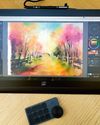
XPPen Artist Pro 19 (Gen 2)
Whether you’re a pro artist or a passionate hobbyist, this pen display offers something for everyone with beautiful colour and accurate drawing
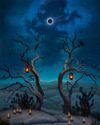
First Impressions
The artists explains how her imagination for fantasy was born
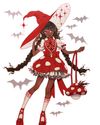
DRAW VIBRANT CHARACTER ART
LIDIA CAMBON reveals her step-by-step process for creating a full-body illustration from first sketch to vibrant, cohesive colour with markers
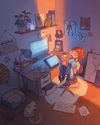
Photoshop & Blender: BUILD NARRATIVE USING INTERIORS
Find out how illustrator Magdalina Dianova creates a cosy setting that helps to express her character’s personality
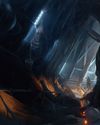
Blender, Procreate & Photoshop DESIGN CREEPY ARCHITECTURE
Nick Stath explains how he built an eerie, atmospheric environment for the sci-fi horrors of Alien: Romulus
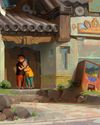
Photoshop - PAINT FAN ART WITH EMOTION
Baptiste Boutié goes in-depth on his approach for creating visual appeal in a tribute to Tekkonkinkreet
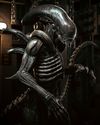
ZBrush, KeyShot & Photoshop - CRAFT A HIDEOUS ALIEN NIGHTMARE
Follow along as character and creature artist Kyle Brown makes xenomorph fan art inspired by Alien: Romulus
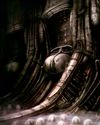
FEARFUL VISIONS
ImagineFX explores the visual heritage of the visceral Alien cosmos and its develooment over the franchise's history

Mike Butkus
Surf's up! Why coastal comforts lured the artist to his California home
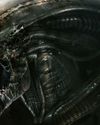
The art behind Alien: Romulus
Xenomorphology Tanya Combrinck meets the Alien-obsessed concept artists who revived the visual style of the classic films